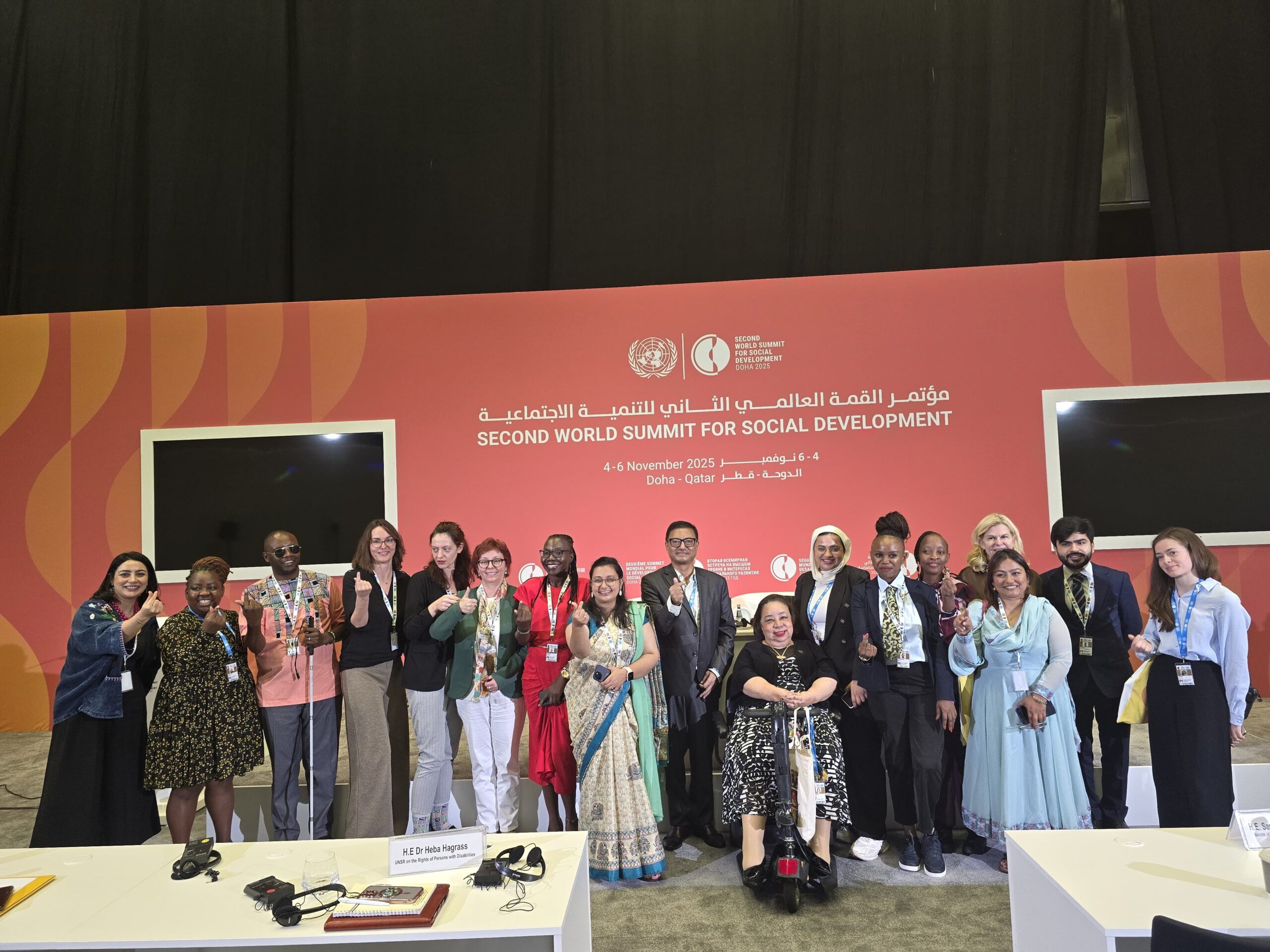On 4 November 2025, the International Commission of Jurists (ICJ), in collaboration with the Government of Finland, Forum for Women, Law and Development (FWLD), CIL–Kathmandu, the International Disability Alliance (IDA), the International Institute for Human Rights, Environment and Development (INHURED International), and the UN Special Rapporteur on the Rights of Persons with Disabilities, co-organized a session at the Second World Summit for Social Development in held in Doha, Qatar between 4 and 6 November 2025.
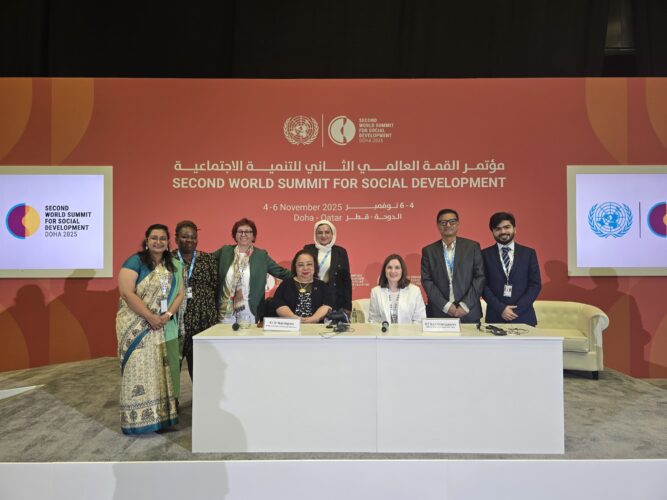
The session, titled “Redefining Justice Now-Ending Disability-Based Exclusion”, focused on significant and ongoing barriers women and girls with disabilities face in accessing justice across the world, with drawing on examples from Kenya, Nepal, Malaysia and Finland. Participants called for legal reforms to ensure that women and girls disabilities, and in particular women and girls with intellectual and/or psychosocial disabilities, can exercise and enjoy their human rights guaranteed in the Convention on the Rights of Persons with Disabilities (CRPD) and, in particular, the rights to: access to justice (Article 12), legal capacity (Article 13) and liberty and security of person (Article 14).
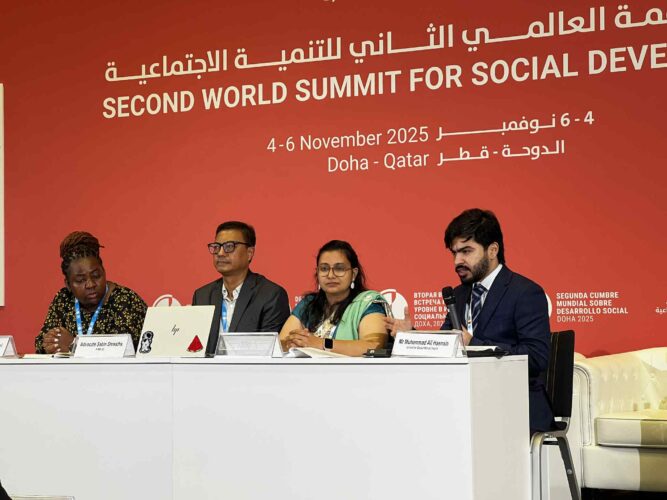
Concluding the session, ICJ Legal Adviser Karuna Parajuli noted,
“The 2025 Qatar Summit has provided a timely platform to advance justice and reaffirm our collective responsibility to ensure that no one is left behind. It has provided a platform to advocate for justice systems to be more inclusive and effective, for example, through training of justice actors, the provision for procedural accommodations and the elimination of all forms of institutionalization in line with international human rights standards, including CRPD”.
Describing the barriers faced by women with disabilities in accessing justice in Malaysia, Ms. Beatrice Leong, an autistic self-advocate explained:
“I was only diagnosed as autistic in adulthood… The diagnostic frameworks we inherited are male, Western, and medicalized, failing to recognize women and girls who mask, adapt, and are punished for being misunderstood”.
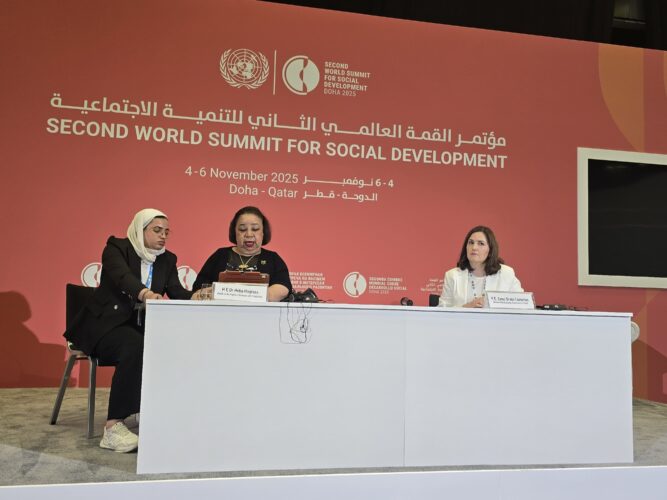
Dr. Heba Hagrass, UN Special Rapporteur on the Rights of Persons with Disabilities, emphasized that, from the perspective of her mandate:
“Women and girls with disabilities continue to face barriers to justice due to gender and ableism-based stereotypes, and a lack of accessible infrastructure and sign-language interpreters”.
She therefore called for States to ensure inclusive legal frameworks and support systems for women and girls with disabilities because this is crucial in the protection of their human rights:
“Access to justice is not a single right, it is the gateway to all other rights. Without it, equality remains theoretical”.
Delivering a keynote speech, Her Excellency Sanni Grahn-Laasonen, Minister of Social Security of Finland, reaffirmed Finland’s commitment to tackle the various forms of discrimination faced by women and girls with disabilities and to advance their rights.
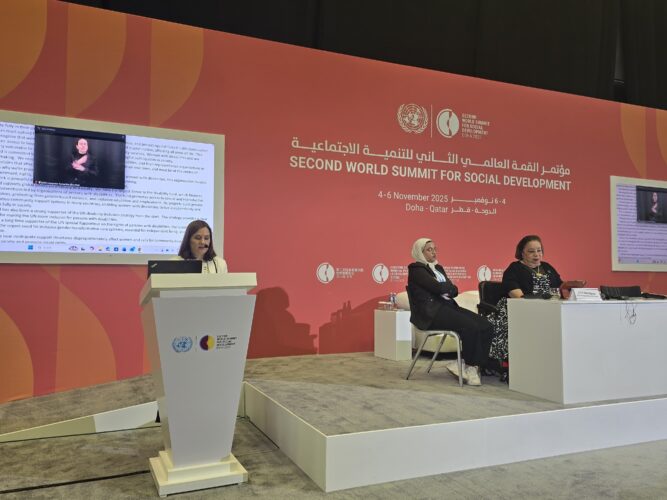
The panel discussion also included presentations by Ms. Esther Caroline Mkamori (United Disabled Persons of Kenya), Advocate Sabin Shrestha (Forum for Women, Law and Development) and Muhammad Ali Hasnain (United for Global Mental Health).
The following recommendations stemming from the discussions include that States take measures to:
- Recognize Legal Capacity: Ensure that all persons with disabilities are guaranteed full legal capacity in all proceedings, and undertake legal reforms to repeal or amend discriminatory laws, including those containing derogatory/discriminatory language or provisions that restrict their legal capacity.
- Ensure Accessible Justice: Provide procedural accommodations, accessible information and affordable legal representation. This should include availability of the support persons such as justice intermediaries and sign language interpreters, as critical aspects for inclusive and accessible justice process.
- Review and Reform Laws: Conduct an audit of all laws, policies, and practices, including those relating to the operation of the justice systems, and take measures to amend and adapt them to ensure they align with the CRPD.
- Uphold Rights and Promote Rights-Based Mental Health Care: Ensure full CRPD protections, including by ensuring: freedom from discrimination; treatment only with informed consent; and the end of coercive practices through supported decision-making and accountability mechanisms.
- Strengthen Justice Systems: Mandate training and accountability measures for justice actors, including but not limited to judicial officers, to ensure fair and inclusive treatment of persons with disabilities. Additionally, develop, adopt and implement guidelines to ensure the meaningful inclusion of persons with disabilities within justice systems.
- Address Intersectional Discrimination: Actively tackle multiple forms of discrimination against women and girls with disabilities across all sectors.
- Promote Leadership and Inclusion: Support leadership of women and girls with disabilities, including in particular intellectual and/or psychosocial disabilities, to dismantle their systemic exclusion.
Download
Summary of the Solution Session: Qatar Social Summit Summary
Contact
Karuna Parajuli, Legal Adviser, ICJ Asia and the Pacific Programme, e: karuna.parajuli@icj.org

